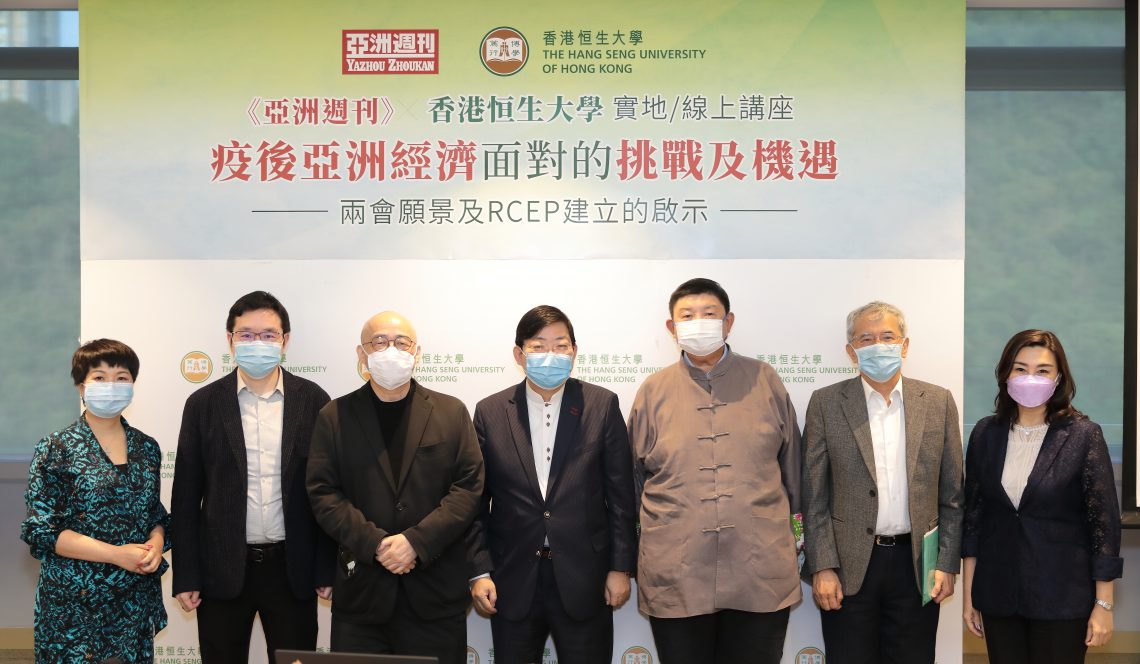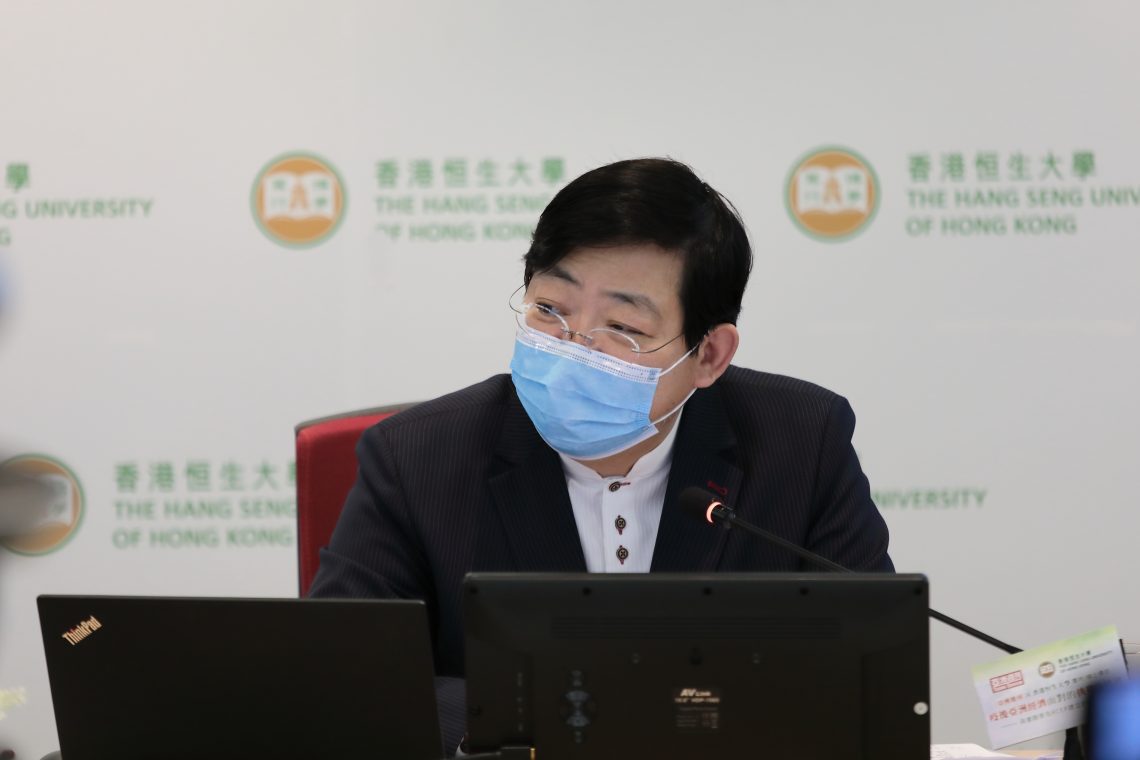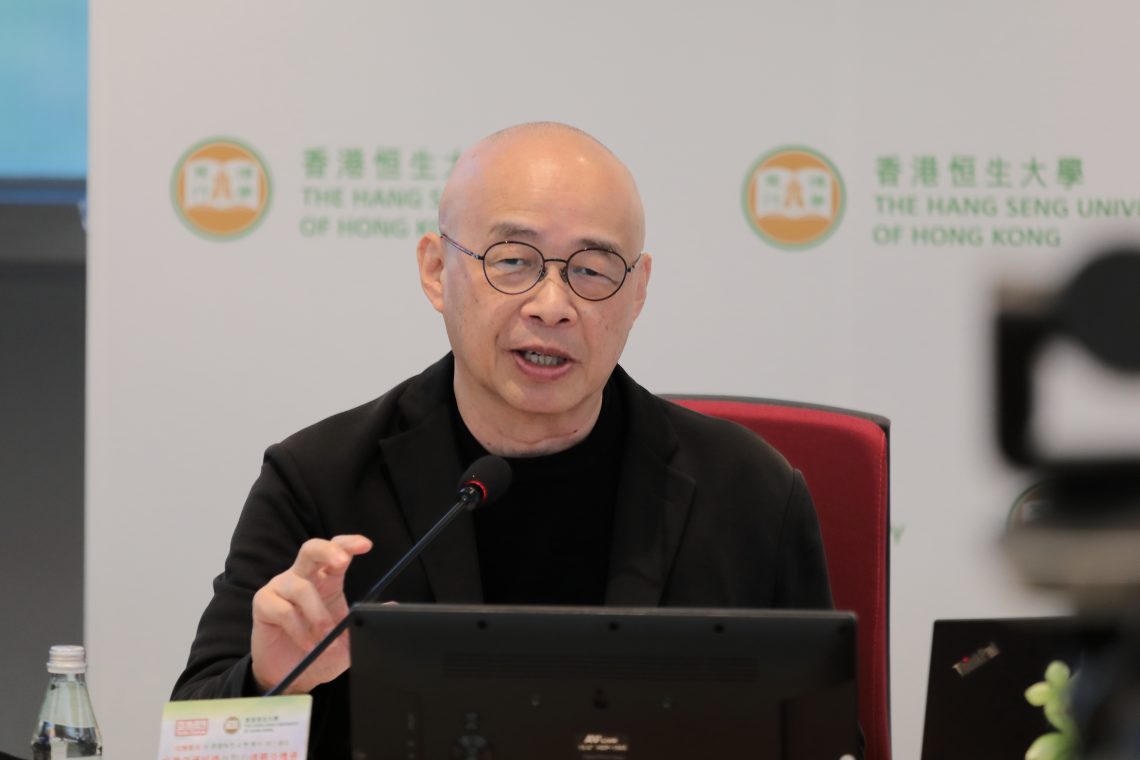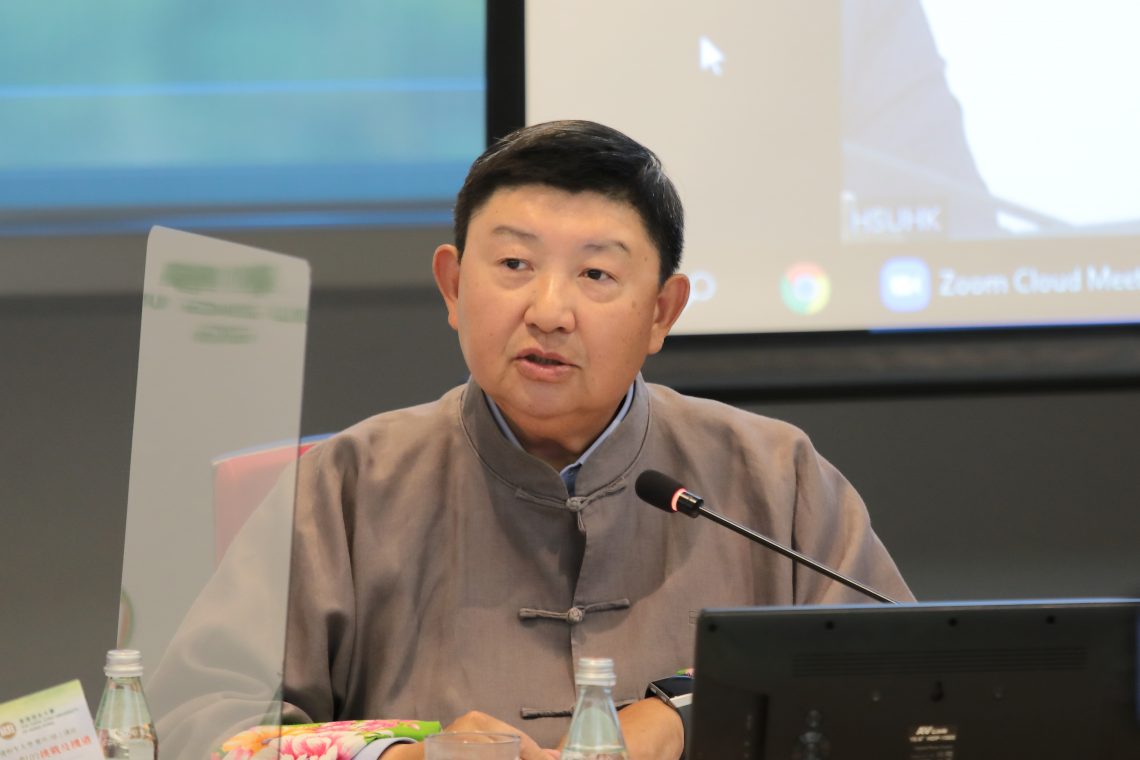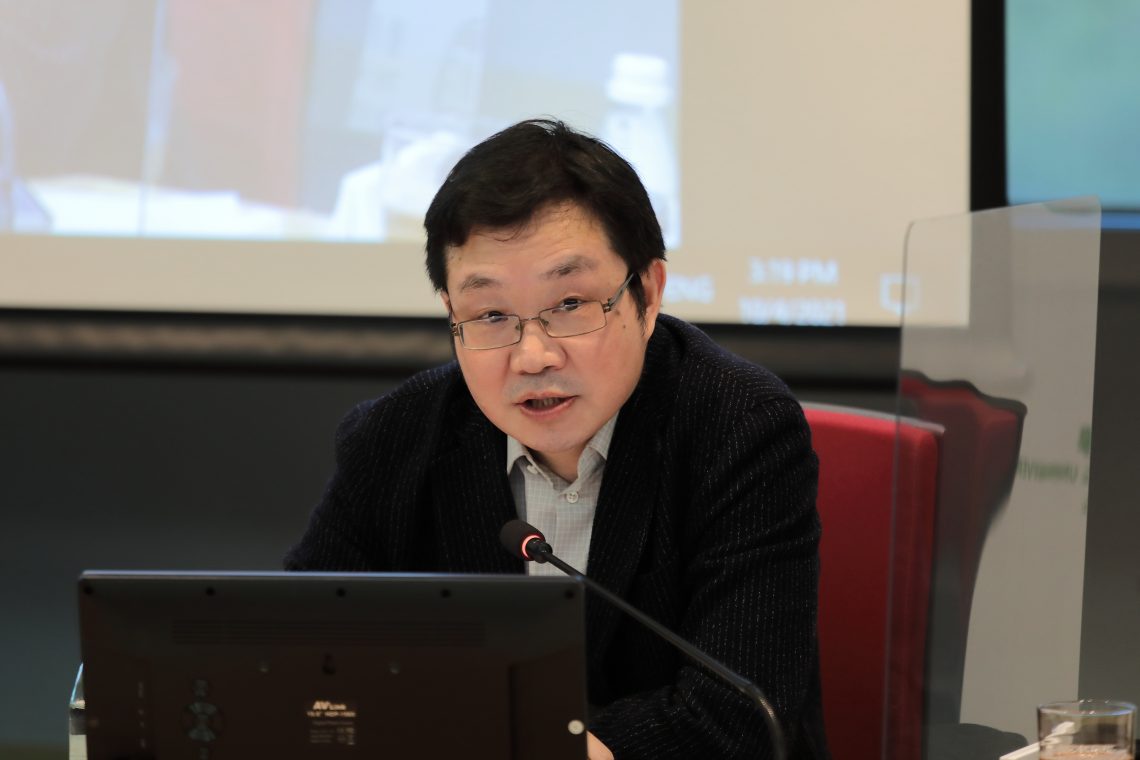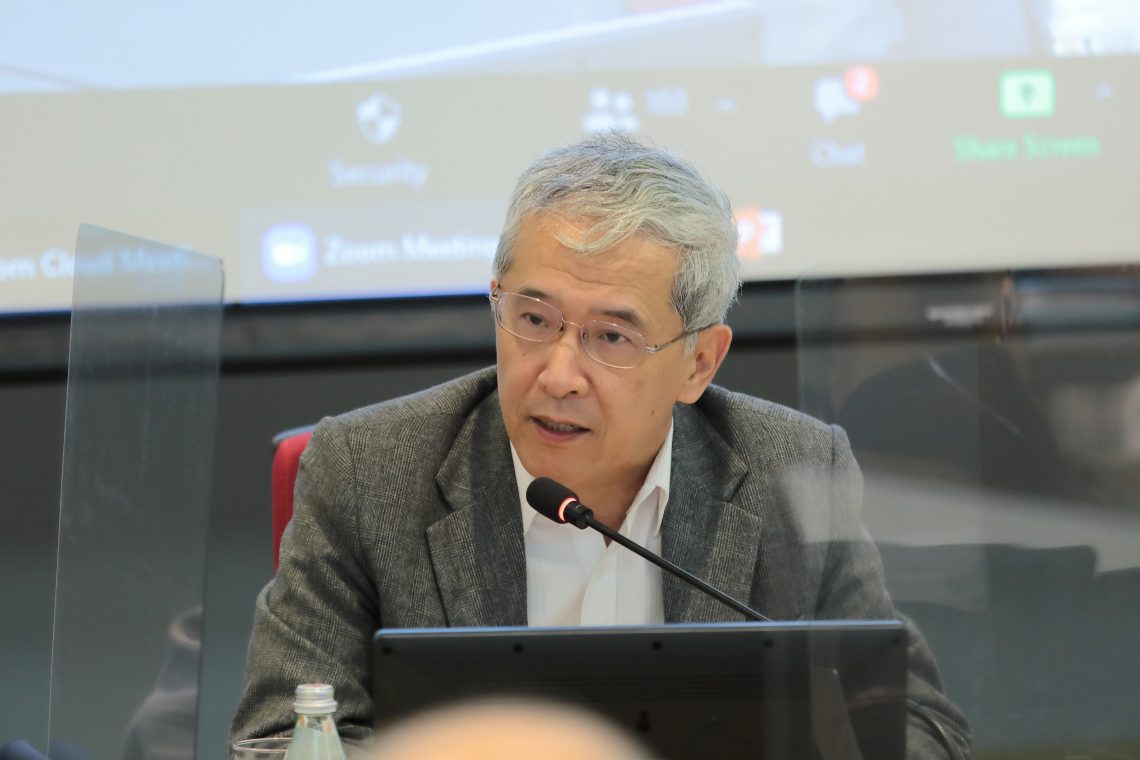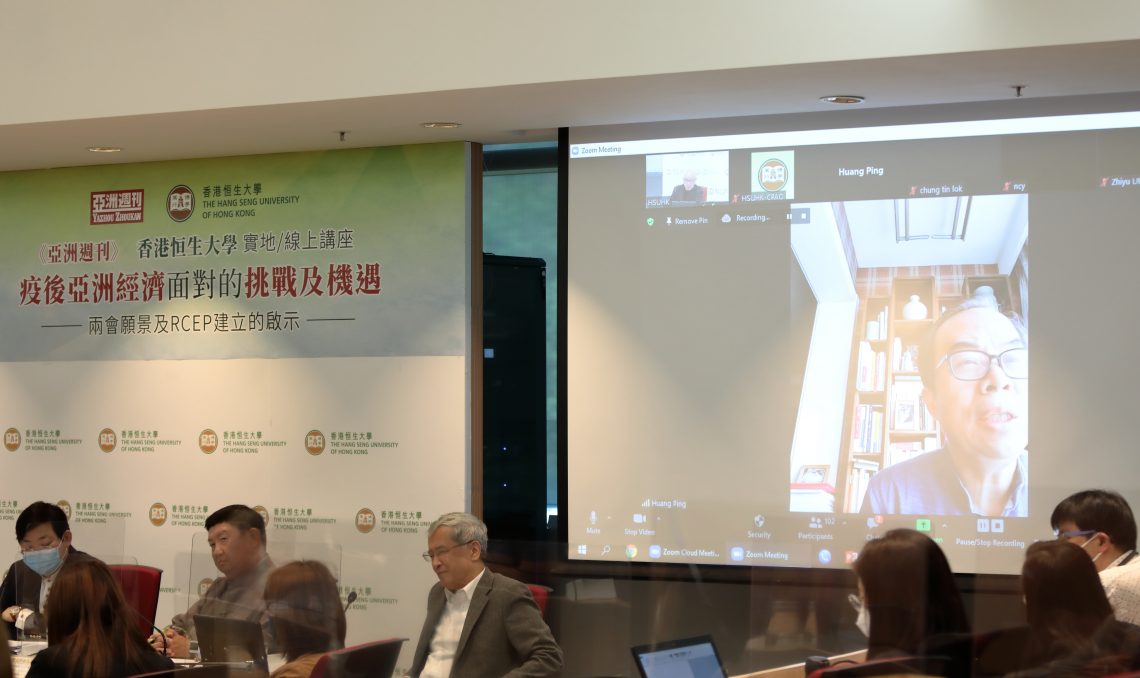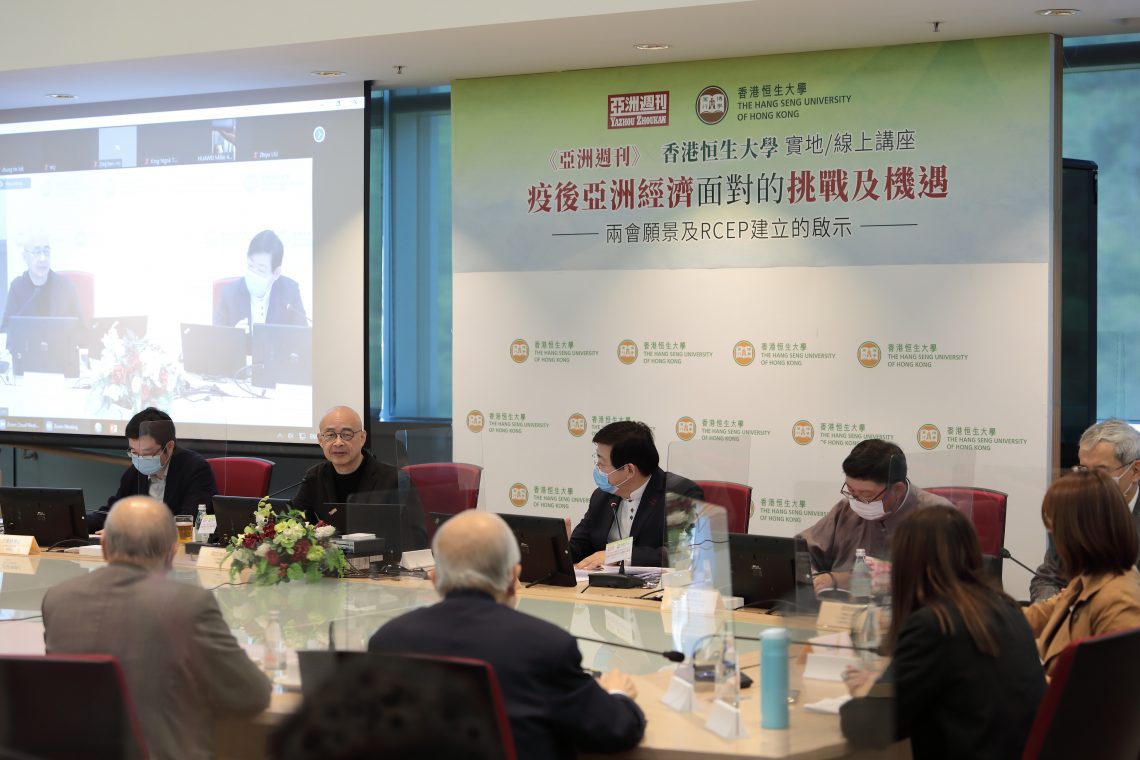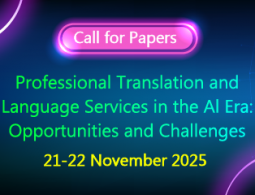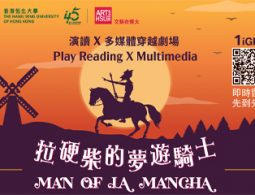10 April 2021
The Hang Seng University of Hong Kong (HSUHK) and Yazhou Zhoukan (YZZK) have co-organised a seminar themed ‘Challenges and Opportunities Faced by Asia’s Economy after Pandemic’, exploring the prospects of Asia’s economies and Hong Kong from the perspectives of Asia’s post-pandemic economic challenges, the establishment and impact of RCEP, the US-China Rivalry, the opening and visions of China’s Two Sessions, and the economic developments in China and Asia.
Co-hosted by Professor Simon S M Ho, President of the HSUHK and Mr Lop-poon Yau, Chief Editor of YZZK, the seminar had four prestigious guest speakers including Dr Junfei Wu, Deputy Director of Tianda Institute; Mr David Lie, Chairman of the China New Era Foundation Limited, Chairperson of Hong Kong Taiwan Economic and Cultural Co-operation and Promotion Council, and Executive Chairman of Newpower Group; Professor Lang Kao, Director of Centre for Greater China Studies of the HSUHK; and Dr Ping Huang, Executive President of Chinese Institute of Hong Kong. It was well-received by over 300 on-site and online participants with lively interactions and discussions between the hosts and the guest speakers.
In the opening introduction, Mr Yau pointed out that while the launch of the COVID-19 vaccines is the light for the recovery of Asia’s economy, the world remains shrouded in continued US-China tensions. Yet the breakthroughs in developments of technologies in Fintech, Cryptocurrency, payment systems and Artificial Intelligence in the Greater Bay Area can help further drive the economic integration of East Asian countries.
Dr Wu mentioned that though Southeast Asian economies are more efficient in handling the pandemic compared with Western countries, there are two major uncertain factors in the economic development prospect of Asia’s economy. Firstly, the severely inequitable distribution of vaccines and the gap of vaccination rates may lead to a discrepancy in the pace of the recovery between different nations. Secondly, the emergence of variants of COVID-19 poses new threats to the fight against the pandemic and is the hidden obstacle of global economic recovery.
In late 2020, 15 Asian nations established The Regional Comprehensive Economic Partnership (RCEP) which gave a shot in the arm for the integration of Asia’s economy. Professor Kao agreed that regional cooperation and integration will help get through difficulties as trade and investments among RCEP member countries will substantially increase. “In the long run, if China’s economy keeps booming, it needs to reform so that the economy will be more diversified and open. It also needs to keep its long-term multilateral policy.” Other speakers also agreed that China should strive to enter CPTPP (Comprehensive and Progressive Agreement for Trans-Pacific Partnership) to make a greater contribution to globalisation.
With the global economy hit hard by the pandemic, China’s Gross Domestic Product (GDP) was increased by 2.3% in 2020, being the only major economy recording a positive growth in the last year. The 14th Five-Year Plan passed in Two Sessions did not set a target for the GDP growth, stressing that high-quality development was the foundation for sustainable and healthy developments of the 14th Five-Year Plan as well as China’s economic society in the long run. Mr Lie said that China’s previous Five-Year Plans were driven by foreign investments, trade and domestic demand, yet under the impact of geopolitical factors, the growth of China’s economy will depend on internal circulation driving external circulation.
Regarding the role of Hong Kong in China’s economic development, Dr Huang thought that the Guangdong-Hong Kong-Macau Greater Bay Area is at the intersection of the dual circulation in the areas of technological innovation and consumption power, while the Greater Bay Area is the growth point of China’s dual circulation. These conditions benefit Hong Kong to play a unique role. And Mr Lie suggested that the Hong Kong Government should strengthen education and the training of talents so that Hong Kong people will have a better understanding of the culture of the Greater Bay Area and engage in its development.
During the Q&A session, Professor Ho said the COVID-19 pandemic reveals that governments and enterprises across the world are not competent enough to respond to ad hoc crisis. In the long run, he suggested that all of us should rethink about how to enhance adaptability as well as the direction of sustainable development to build a more robust and anti-risk economic system, aiming to find a new balance point between efficiency, resilience and social inclusiveness.
Related Posts
Admission Talk for Bachelor’s and Master’s Degree Programmes
The School of Translation and Foreign Languages will hold the Admission Talk for Bachelor's and Master's Degree Programmes. Useful information regarding the entrance requirements, study…
HSUHK Summer Academy 2025
The HSUHK is celebrating its 45th Anniversary this year, while the theme of HSUHK Summer Academy 2025 (The Academy) this year will be “Unleash your imagination: The development…

